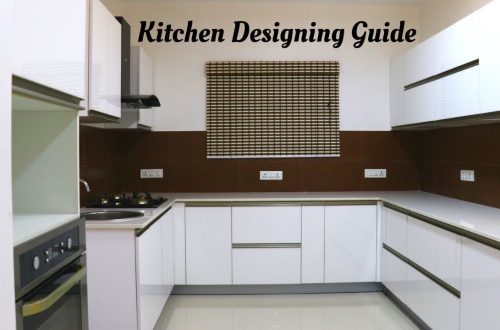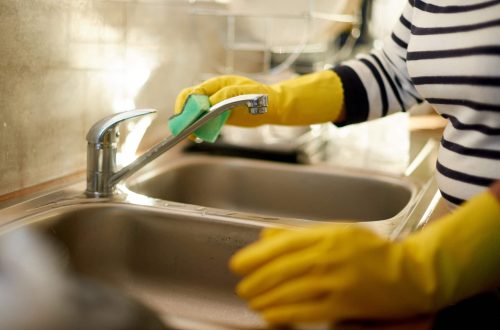The kitchen: the heart of the home․ It’s where we cook, we gather, and sometimes, where we dance (or is that just me?)․ But amidst the aroma of freshly baked bread and the sizzle of frying pans, lies a crucial question about electrical safety: do your kitchen appliances really need isolating switches? It’s a question that often gets overlooked, but understanding the answer could save you from a potential shock – literally! Let’s dive in and demystify this important aspect of kitchen safety․
Understanding the Purpose of Kitchen Appliance Isolating Switches
So, what exactly is an isolating switch? Simply put, it’s a switch that allows you to completely disconnect an appliance from the electrical supply without having to unplug it․ Think of it as a safety net, providing a convenient and reliable way to cut power during maintenance, repairs, or in case of an emergency․ But are they always necessary for kitchen appliances?
Why Use Isolating Switches for Kitchen Appliances?
There are several compelling reasons to consider installing isolating switches for your kitchen appliances:
- Enhanced Safety: Isolating switches provide a clear and immediate way to cut power in case of a fault or emergency․
- Convenient Maintenance: Makes it easier and safer to perform maintenance or repairs on appliances․
- Compliance with Regulations: In some regions, building regulations may require isolating switches for certain appliances․
Imagine trying to fix a faulty dishwasher with wet hands – not a great scenario, right? An isolating switch gives you peace of mind knowing you can instantly cut the power․
Tip: Always consult with a qualified electrician before installing or modifying any electrical circuits in your home․ Safety first!
Which Kitchen Appliances Benefit Most from Isolating Switches?
While isolating switches can be beneficial for many appliances, some benefit more than others․ Let’s look at some key examples:
High-Power Kitchen Appliances and Isolating Switches
Appliances that draw a significant amount of power, such as ovens, cooktops, and dishwashers, are prime candidates for isolating switches․ These appliances often have complex wiring and heating elements, making them more susceptible to faults․
- Ovens and Cooktops: Essential for safe maintenance and preventing accidental activation․
- Dishwashers: Reduces the risk of electric shock during repairs or cleaning․
- Washing Machines: Although not always in the kitchen, if it is, an isolating switch is a good idea․
Think about it: a faulty heating element in your oven could pose a serious fire hazard․ An isolating switch allows you to quickly and safely disconnect the power, preventing further damage or injury․
Are Kitchen Appliance Isolating Switches Required by Law?
This is where things can get a little tricky․ Whether or not isolating switches are legally required depends on your local building codes and electrical regulations․ It’s always best to check with your local authorities or a qualified electrician to determine the specific requirements in your area․
Checking Local Regulations for Kitchen Appliance Isolating Switches
Building codes vary from region to region, so it’s crucial to do your homework․ A quick search online or a call to your local building department can provide clarity․
Interesting Fact: Some older homes may not have isolating switches installed․ If you’re renovating or upgrading your kitchen, now is a great time to consider adding them!
Installing Kitchen Appliance Isolating Switches: DIY or Hire a Pro?
While some homeowners might be tempted to tackle electrical work themselves, installing isolating switches is generally best left to the professionals․ Electrical work can be dangerous, and improper installation can lead to serious consequences․
The Importance of Hiring a Qualified Electrician for Kitchen Appliance Isolating Switches
A qualified electrician has the knowledge, skills, and experience to safely and correctly install isolating switches․ They can also ensure that the installation complies with all applicable regulations․
Why risk it? Your safety and the safety of your home are worth the investment in a professional electrician․
FAQ: Kitchen Appliance Isolating Switches
Q: Are isolating switches expensive to install?
A: The cost can vary depending on the complexity of the installation and the number of switches needed․ Get quotes from several electricians to compare prices․
Q: Can I install an isolating switch myself?
A: While possible, it’s strongly recommended to hire a qualified electrician for safety reasons․
Q: Where should isolating switches be located?
A: Ideally, they should be located in an easily accessible spot near the appliance they control․
Q: What type of isolating switch should I use?
A: Your electrician can advise you on the best type of switch for your specific appliances and electrical system․
Q: Are isolating switches only for kitchens?
A: No, they can be used for any appliance that benefits from having a dedicated power disconnect․
So, do kitchen appliances need isolating switches? While not always legally mandated, they offer a significant boost to safety and convenience․ They provide a clear and immediate way to cut power, making maintenance safer and preventing potential hazards․ Ultimately, the decision is yours, but prioritizing safety in your kitchen is always a wise choice․ Consider consulting with a qualified electrician to assess your needs and determine the best course of action for your home․ After all, a safe kitchen is a happy kitchen!



